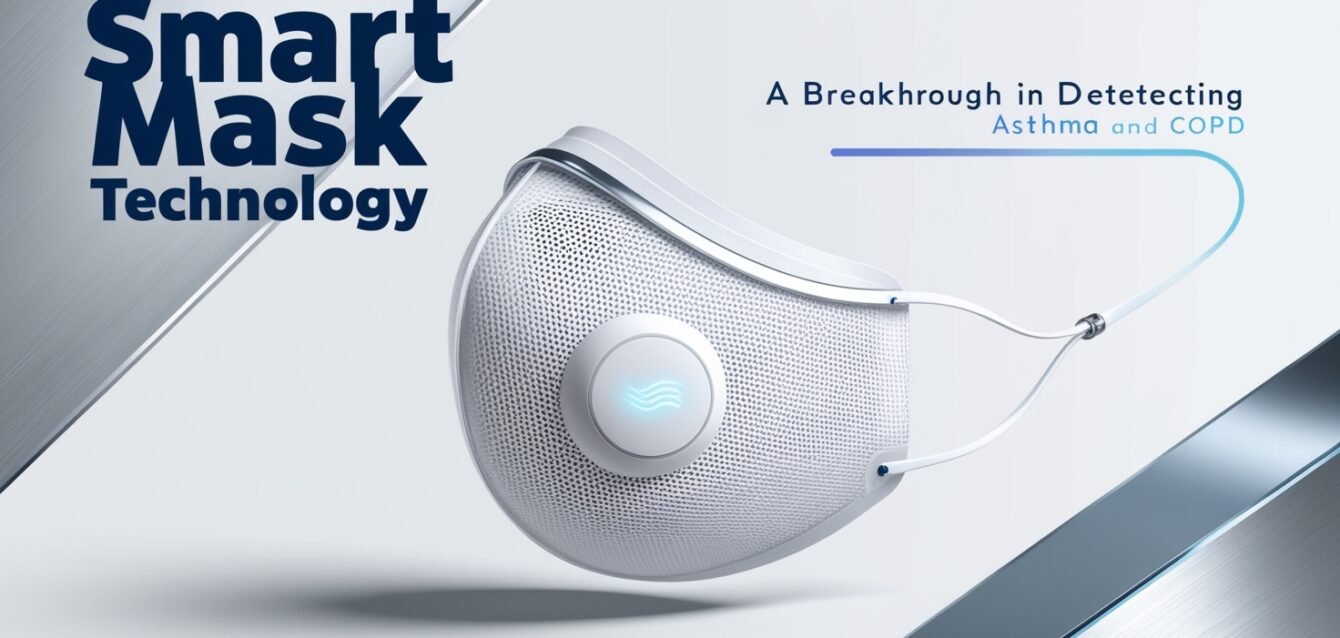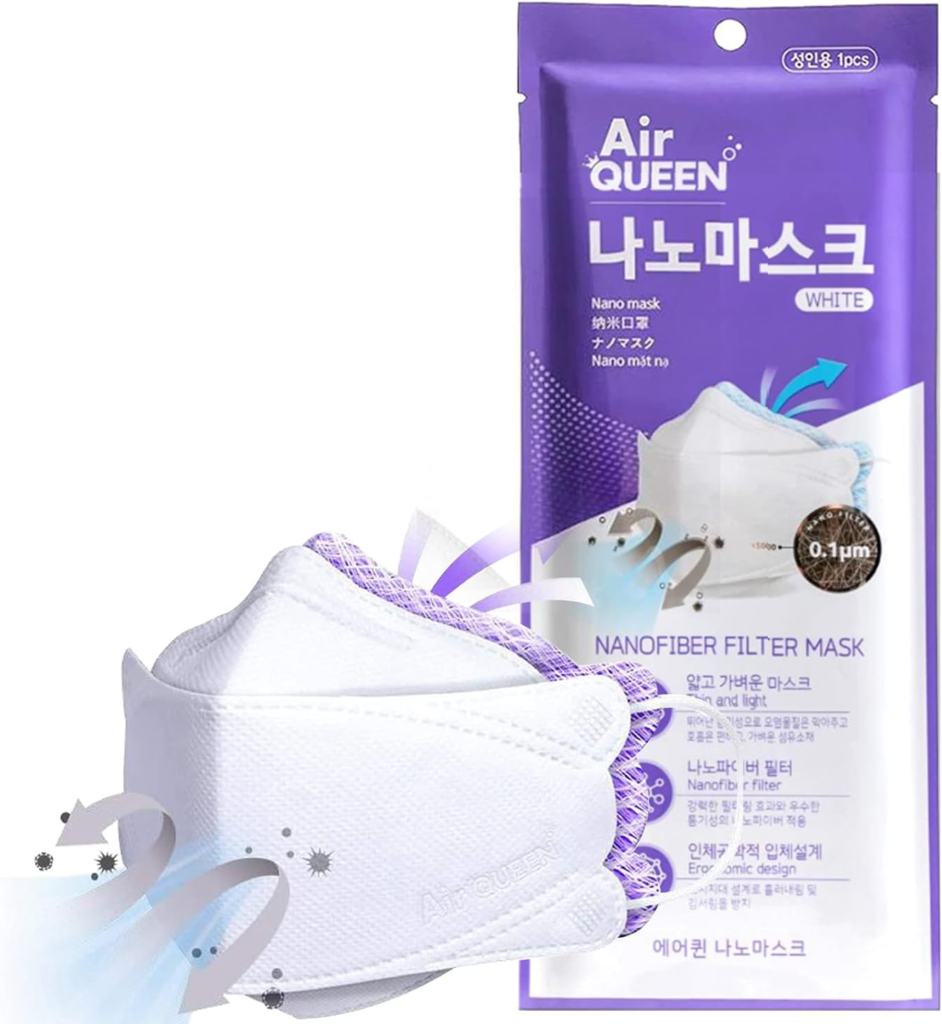Smart Mask Technology
In recent years, technological advancements have significantly influenced health monitoring practices, paving the way for innovative solutions in respiratory health. One of the most notable developments in this arena is the emergence of smart mask technology. These modern face coverings symbolize the evolution of traditional masks, integrating sophisticated features tailored to enhance health monitoring capabilities.
Smart masks are equipped with sensors that can capture data related to airflow, breathing patterns, air quality, and even vital signs. This information is invaluable for individuals suffering from chronic respiratory conditions such as asthma and chronic obstructive pulmonary disease (COPD). Such users can benefit from real-time insights, allowing for better management of their conditions and a higher quality of life.
The significance of respiratory health monitoring cannot be overstated, particularly considering the increasing prevalence of respiratory diseases worldwide. Effective management necessitates a comprehensive understanding of one’s health status, often requiring continuous monitoring. Traditional masks have served their purpose by providing basic protection against airborne pathogens; however, they lack the capacity to monitor and provide feedback on an individual’s respiratory health.
As we delve deeper into smart mask technology, it becomes clear that these devices do much more than just act as barriers. They serve as essential tools for individuals needing constant oversight of their respiratory status. By integrating modern technology into everyday items, the smart mask offers a solution for proactive health management. With features designed specifically for the detection of asthma and COPD, these masks are expected to play an instrumental role in the future of respiratory health care.
(Purchase today by clicking on the image)
How Smart Masks Work
Smart masks are at the forefront of respiratory health technology, utilizing advanced sensors to monitor and analyze various aspects of respiratory function and environmental conditions. At the core of these masks are a range of sophisticated sensors that provide critical insights into both air quality and user health metrics. Gas sensors, for instance, play a pivotal role in detecting harmful pollutants and allergens in the air. By monitoring levels of gases such as carbon dioxide (CO2) and volatile organic compounds (VOCs), these sensors can alert users to potentially hazardous air quality conditions that could exacerbate respiratory conditions like asthma and Chronic Obstructive Pulmonary Disease (COPD).
In addition to gas sensors, humidity sensors are integrated into smart masks to assess the moisture content in the air inhaled by users. This data is vital, as elevated humidity levels can impact respiratory efficiency and overall comfort. Furthermore, heart rate monitors may also be embedded within the mask to track biometrics, providing real-time feedback on the user’s physical state. By continuously monitoring physiological parameters, these smart masks can deliver personalized recommendations for managing respiratory health.
Moreover, the integration of machine learning algorithms and data analytics enhances the diagnostic capabilities of smart masks. By collecting and analyzing data over time, these advanced systems can learn an individual’s specific health patterns and responses to varying environmental conditions. This information allows for more accurate predictions regarding potential health issues, facilitating timely interventions. Ultimately, smart mask technology represents a significant advancement in health monitoring, offering users the tools necessary for proactive management of their respiratory conditions.
Benefits of Smart Masks for Asthma and COPD Patients
Smart masks represent a significant advancement in the management of asthma and Chronic Obstructive Pulmonary Disease (COPD). One of the primary advantages of these innovative devices is their ability to facilitate early detection of exacerbations. By continuously monitoring environmental factors and physiological parameters, smart masks notify users when conditions become unfavorable, enabling prompt intervention. This proactive approach can prevent severe asthma attacks or COPD flare-ups, ultimately leading to better health outcomes for patients.
Moreover, smart masks provide personalized feedback tailored to the individual user’s specific health needs. For instance, some smart masks are equipped with algorithms that analyze breathing patterns and offer insights to optimize inhaler usage or adjust medication dosages. This level of personalization ensures that patients can take charge of their condition and adapt their management strategies based on real-time data. Such tailored feedback can lead to improved adherence to treatment regimens and a reduction in hospital visits.
Real-time alerts are another vital aspect of smart masks that significantly benefit individuals with asthma and COPD. Features such as notifications during high pollution days or when allergens are present in the air can empower users to modify outdoor activities or take preventive measures. This capability not only enhances their quality of life but also reduces unnecessary anxiety associated with managing chronic respiratory conditions.
Case studies exemplify the positive impact smart masks have had on patients’ daily lives. For instance, a 34-year-old asthma sufferer reported that her smart mask alert system helped her forecast potential attacks, allowing her to adjust her activities accordingly. Similarly, testimonials from COPD patients highlight enhanced confidence and a sense of security as they navigate daily challenges. The technology behind smart masks thus holds substantial promise in transforming asthma and COPD management for many individuals.
Future of Smart Mask Technology and Respiratory Health Monitoring
The advent of smart mask technology presents a promising frontier in the realm of respiratory health monitoring. Future developments in this domain are poised to enhance sensor accuracy significantly, leading to more reliable measurements of respiratory conditions such as asthma and chronic obstructive pulmonary disease (COPD). As technology evolves, it is likely that we will see more sophisticated sensors capable of detecting a wider range of air quality indicators, thereby providing users with immediate feedback on their respiratory status. These enhancements could facilitate better management of chronic respiratory conditions by allowing patients to respond proactively to environmental triggers.
Moreover, the integration of smart masks with mobile health applications is anticipated to be a game-changer in personal health monitoring. By connecting these devices to smartphones or health-centric platforms, individuals can track their respiratory health metrics over time, receive alerts for potential issues, and share data seamlessly with healthcare providers. This connectivity could foster a collaborative health management approach, where patient data becomes invaluable for real-time analysis and intervention strategies.
The role of telemedicine also cannot be overstated in the future of smart masks. As remote healthcare services become more prevalent, health professionals can utilize data collected from smart masks to offer tailored recommendations and adjustments to treatment plans without necessitating in-person visits. This will not only enhance patient convenience but also optimize healthcare resources, creating a more efficient healthcare delivery model.
While the potential benefits of smart mask technology are significant, privacy concerns regarding the management of user data must be addressed. Ensuring that personal health information is secured and handled with care will be crucial for gaining user trust and widespread adoption. As research continues and collaborations between technology entities and healthcare providers grow, a balanced approach prioritizing innovation alongside privacy will be essential in shaping the future of respiratory health monitoring.





